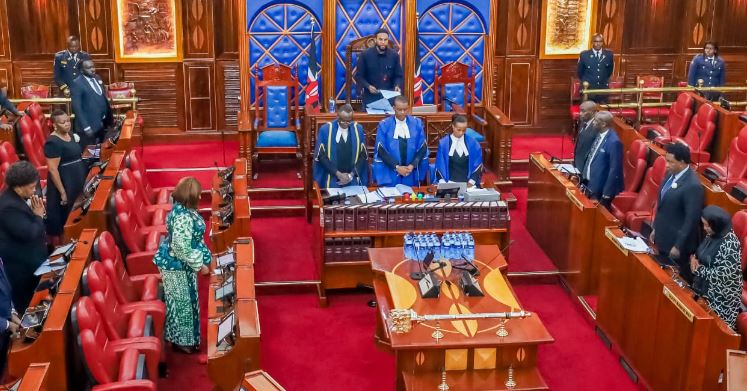 The Senate: Do not allow the tobacco lobby and its front groups to dictate Kenya’s health policies.
The Senate: Do not allow the tobacco lobby and its front groups to dictate Kenya’s health policies.
The toll is devastating: families are shattered, children are orphaned, and communities lose some of their most productive and promising members. Between 2012 and 2021 alone, Kenya lost more than 60,000 people to tobacco-related diseases.
This is why the Tobacco Control (Amendment) Bill, 2024, now before the Senate, is not just a piece of legislation. It is a life-saving measure that must be strengthened. The current law, enacted in 2007, is outdated. It was written before the rise of new emerging nicotine products such as e-cigarettes and nicotine pouches, which are now flooding the market, often unregulated and aggressively marketed to the youth.
The amendment also seeks to align the law with the 2010 Constitution, which devolved health to county governments. Without these reforms, enforcement will remain weak, leaving gaps that the tobacco industry will continue to exploit.
Yet, despite this urgency, Senators are being pressured by bar owners, kiosk operators, and other traders to abort, delay, or derail the bill, as they are profiting from the outdated law. History tells us these arguments are often influenced or directly orchestrated by the tobacco industry. It is a familiar strategy: sow doubt, cry economic hardship, and demand endless consultation, all in the hope of weakening or delaying laws that put health first.
Bar and restaurant owners should, instead, be channelling their energy into helping protect young people and communities from alcohol and deadly nicotine products. They should stop advertising and promoting these products by giving free samples to school-going children, end the selling of vaping products online and ensure they are not trading in illicit or smuggled tobacco.
Parents across the country have already raised the alarm, strongly opposing the sale of these unregulated products, which are being marketed and sold near schools by the same unlicensed traders. Rather than interfering with legislative processes, the traders should be working with authorities to clean up smuggled products, comply with the law, and safeguard Kenya’s future generations.
Rachel Kitonyo, a veteran tobacco control advocate, cautions that what is unfolding in Kenya is nothing new “This is clear tobacco industry interference, plain and simple. For years, the industry has harassed the government of Kenya, dragged regulations through endless court cases, and forced its way into policymaking spaces where it has no place,” she said.
She recalls that these same tactics were deployed when Kenya was developing its first comprehensive law, the Tobacco Control Act of 2007. “We saw these theatrics before, and we must not allow history to repeat itself. If such interference succeeds again, it will not only put Kenyan lives at risk but also undermine our obligations under the WHO Framework Convention on Tobacco Control (FCTC), which requires governments to shield health policy from industry influence,” she added.
The health stakes cannot be overstated. Tobacco use is a leading driver of non-communicable diseases (NCDs) such as cancer, cardiovascular diseases, chronic respiratory illnesses, and diabetes. These diseases are now the world’s leading killers, and in Kenya, they account for more than 39% of all annual deaths, according to the Ministry of Health. Crucially, tobacco use is a modifiable risk factor—one we have the power to control through strong laws and decisive action.
Joel Gitali, Chairman of the Kenya Tobacco Control and Health Promotion Alliance, underscores the urgency: “Kenya is at risk of losing its leadership position in tobacco control and public health. The tobacco industry is harassing the government of Kenya, it has taken the government to court countless times, and now enjoys a level of influence in our country due to its financial muscle contrary to the law.”
This amendment is about protecting today’s children and future generations. Every day that passes without stronger regulation exposes more young people to addiction and increases the risk of a new wave of NCDs that will strain families, counties, and the entire health system.
Senators, the decision now lies with you. Do not allow the tobacco lobby and its front groups to dictate Kenya’s health policies. Do not let economic scare tactics cloud the real issue at hand: saving lives. Passing the Tobacco Control (Amendment) Bill will not only align our laws with the Constitution and international commitments but will also reaffirm Kenya’s standing as a continental leader in tobacco control.
Parents, teachers, doctors, and young people are looking to
the Senate for leadership. History will remember whether you stood on the side
of public health or on the side of an industry that profits from addiction,
disease, and death.
The writer is the national coordinator of the Kenya Tobacco Control and Health Promotion Alliance. Email: [email protected]












